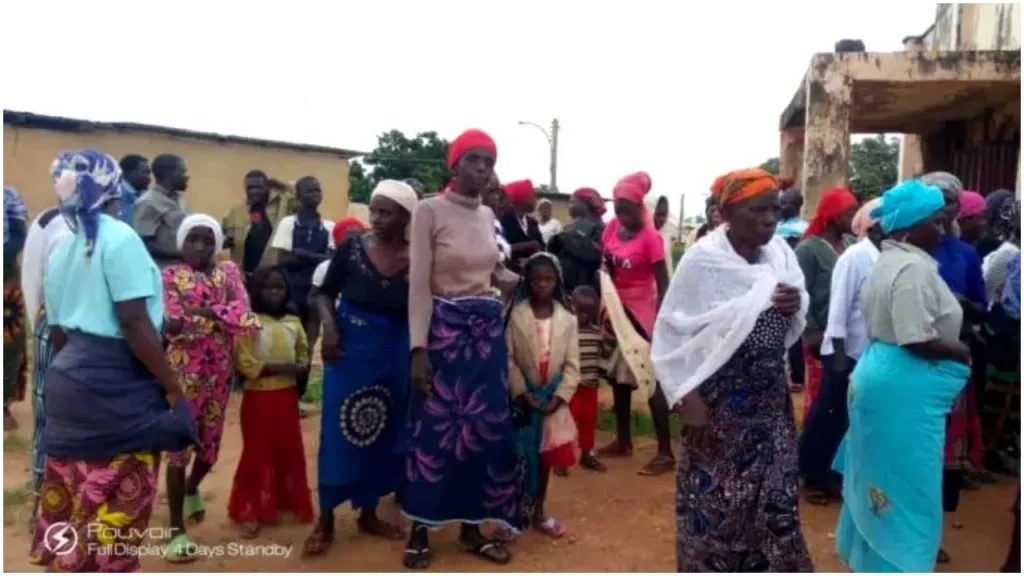A women’s association in Nigeria’s Plateau State has issued a stark warning to authorities, threatening to stage a nude protest unless urgent measures are taken to halt escalating violence targeting ethnic Berom communities. The Berom Women Development Association (BWEDA), in a sharply worded statement released Saturday, accused suspected Fulani militias of carrying out what it described as systematic attacks amounting to genocide, rejecting widespread characterizations of the crisis as mere clashes between herders and farmers.
Signed by BWEDA President Abigail Banga, the declaration condemned the government’s reliance on temporary relief efforts and symbolic gestures, asserting that repeated killings and village burnings persist despite the deployment of security forces. “Our hearts bleed with each butchered child and burned home,” the statement read. “This is not a conflict—it is a campaign of extermination.” The group highlighted allegations of military inaction and potential collusion with attackers, demanding an immediate overhaul of security operations in the region.
Plateau State, a ethnically diverse region in central Nigeria, has endured decades of sporadic violence, often linked to competition over land and resources. However, BWEDA’s assertion that the recent bloodshed constitutes genocide underscores deepening tensions over the perceived failure to protect vulnerable communities. The women criticized the federal and state governments for prioritizing palliative measures—such as condolence visits and food aid—over structural security reforms, arguing this approach has enabled cycles of retaliatory violence.
The threat of a naked protest carries significant cultural resonance in Nigeria, where such demonstrations are rare and typically deployed as a last-resort form of dissent. “We’ve had enough of empty words,” the statement stressed. “This is not just Plateau’s problem—it is Nigeria’s shame.” The group called for international attention to the crisis, urging Nigeria’s leadership to address long-standing grievances and investigate claims of security force complicity.
Human rights organizations have repeatedly documented attacks in Plateau and neighboring states, with UN figures estimating over 200 deaths in the region since December 2023. While federal authorities attribute the violence to criminal gangs and resource disputes, BWEDA’s allegations reflect broader frustrations over what many residents view as government neglect. Analysts warn the escalating rhetoric signals a potential tipping point, with community-led movements increasingly bypassing traditional diplomacy in favor of radical action.
The Nigerian military has yet to respond to the collusion claims, though defense officials have previously denied similar accusations. As pressure mounts, observers emphasize that resolving the crisis will require addressing both immediate security gaps and the root causes of intercommunal distrust—a challenge that continues to test Africa’s most populous nation.
